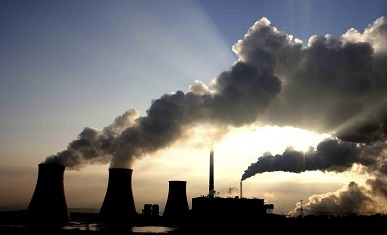In a surprise procedural decision yesterday, the U.S. Supreme Court put the Obama administration's Clean Power Plan on pause while a lower court reviews it.
The Court did not weigh in on the merits of the Environmental Protection Agency's plan, and didn't explain its reasoning, so we don't know the legal basis for this unusual decision.
But we do know that the court has repeatedly upheld the EPA's power -- in fact, its responsibility -- to limit climate pollution under the Clean Air Act. And we know the EPA was extremely careful to put the Clean Power Plan on solid legal and scientific footing. So we remain confident about any decision on the substantive merits of the plan.
This is why states should stay on course and continue to invest in cleaner energy sources. The bigger trend toward clean energy is clear.
Clinging to the past is bad policy
A lower court, the D.C. Court of Appeals, will continue its review of the Clean Power Plan, with a hearing expected to be held in June.
Because of the Supreme Court's action yesterday, the EPA can't require states to move forward with their planning until the issue is settled. But the reality is that many states and power companies will continue to plan for the clean energy future they all know is coming.
In fact, it would be irresponsible to delay the transition away from dirty fossil fuels with the expectation that the Supreme Court will reverse its consistent endorsement of EPA's duty to limit emissions. It's also not what citizens expect from their leaders.
And companies that cling to 19th-century fuels and 20th-century business plans aren't doing their stockholders any good.
Yesterday's ruling was a setback, and it creates uncertainty that could slow progress in some states when we need to be accelerating the transformation to clean energy.
But it's also telling that several states, including Virginia, Colorado and California, have already said they will stay the course.
The Clean Power Plan, which helped inspire China's recent actions on climate change and the 190-nation agreement in Paris, should move forward because it has the facts, law and science on its side.
Find a more detailed legal analysis here.
This post originally appeared on EDF Voices
@RealKeithGaby on Twitter

